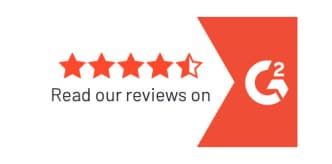Americans who are having debt-burden on their shoulder, this question whirls up to their mind again and again.
“Whether to pay off the debt first or contribute to 401(k) first?”
With this question, a dilemma runs on an American’s mind: how much of your earnings will you use for debt repayment and how much money will you contribute to your 401(k) account?
There is plenty of advice that you have listened to already and are going to listen to that you can pay off your debt first and then you may think about saving in the 401(k) and to your other retirement savings plans.
Yes! This idea or advice is right. You can follow it but there is a glitch to the plan.
Your age will be the vital factor to decide whether to repay your debt first or to save for retirement first.
If you are still young, it means you have time to save for retirement. You can repay your student loan, multiple credit card debts then you can slow save for retirement. You have time as you are young.
But this plan to pay off your debt first and then save for retirement won’t work for you if you have already crossed 30. Because you don’t have that much time in your hand like the early 20s young Americans.
So, what is the ideal way? The correct way is to pay off your debt and save for retirement; both at the same time.
Look at yourself in the next 2 or 3 years
If you are determined to repay at least your unsecured debts in the next 2 to 3 years, you may be free of debt in the next 3 years but you are going to miss the retirement savings for the next 3 years.
If you have a 401(k) account and if you are not contributing at least your company’s match to pay off your debt first, then you are going to miss the next 3 year’s retirement savings.
Maybe, in the next 3 years, you were successful in repaying a major portion of your debts but you have to start all over again with your retirement planning.
So, to pay off your debt first and then concentrate on saving in the 401(k) along with other retirement savings is not going to work for you.
You have to create a balance between retirement savings in 401(k) and debt repayment.
What is the benefit of contributing to a 401(k) account?
The 401(k) is an employer-sponsored retirement plan. You can lessen your taxable income by accepting the 401(k) offer because your company will deduct your contribution on a pretax basis. It means the 401(k) deduction will reduce your taxable income. You have to pay less income tax as an employee after contributing to your company’s 401(k) plan.
Besides the tax benefits, many companies match a part of its employees’ 401(k) contributions. The match establishes a portion of the employees’ compensation. Most of the time, the contribution by the employer is 3% on an average of the employees’ salary but they can give up contributing to an employee’s 401(k) account if the employee does not contribute his/her portion in the 401(k).
So, in brief, for receiving the benefits of the 401(k) account, you have to contribute to the 401(k) also.
Listen to what personal finance experts are saying
Personal finance veterans who are experiencing such types of problems for years, have chalked out a well-balanced plan for you. Thus, you can pay off your due debts and save money to your 401(k) account at the same time.
Read the 3 Points financial recommendations created for you by the financial veterans.
1. You may start with repaying your high-interest credit card debts and payday loans if you have any payday loan. While making payment to your high-interest credit card debts and trying for a payday loan settlement, you may try to match at least your company’s contribution to 401(k). Thus, you can maintain a monetary contribution to 401(k) as well as paying off your high-interest credit card debts and payday debts.
2. When you’ll make the complete payment of your high-interest credit card debts, concentrate on your relatively low-interest credit card debts or the other debts you have. You may pay more than the minimum amount to your low-interest debts. Along with it, you must continue contributing to your 401(k) account.
You can start an Emergency Fund bank account if you think you may again be compelled to take out high-interest debts. The emergency fund will save you from taking out high-interest debts. So, the dilemma of paying off your debt first or continuing to contribute in 401(k) first, will never emerge in your mind.
3. When you will be able to repay a major portion of your low-interest debts, then pay your full attention to increase your retirement savings that include the 401(k).
If you adopt this plan of 3 Simple points, your debt payment will be over and you can maintain your contribution to the 401(k) and other retirement savings accounts.
You can take the expert’s help also to get a permanent solution to your dilemma
If the article is not able to solve your confusion then there will be no harm if you accept the expert’s advice to get a permanent solution to your dilemma.
According to David Blanchett, Head of CFP, CPA, Retirement of Morningstar, 40% of Americans who have accepted the expert’s advice, get a perfect and correct solution to their paying off debt versus contribution to 401(k) first problem.
The survey says the Americans who have not consulted any professionals, are still struggling with both paying off debt and contributing to the 401(k) problem.
Your consulting expert can help you to create a plan to get out of your debts, making appropriate contributions to your 401(k) account, and how to maximize your other retirement savings.
So, you can ask a financial expert if you have any dilemma regarding how to find a permanent solution to your financial problem.
Final Words
Overall, you need to maintain a balance between your debt payment and contributing to the 401(k). For example, you need to pay off your high-interest credit card debts and the payday loans first but there is no need to show any hurry to repay your mortgage loan as it has a low-interest rate. So, the better idea is to take care of your debt payment as well as concentrate on your future savings also.
Author Bio: Catherine Burke is a financial writer for online payday loan consolidation. She provides information on successful cash loans and payday loan consolidation to help people get over a difficult patch. She lives in Kansas and has earned a frame in the matter of payday loans.



